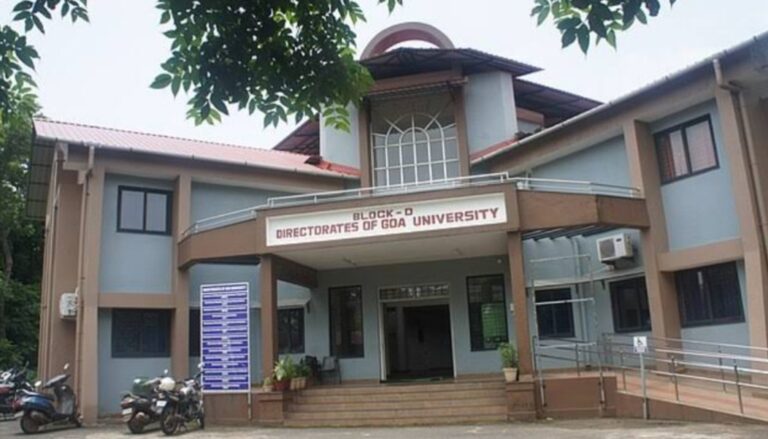In a landmark judgment, the Bombay High Court at Goa has quashed a massive GST demand of over ₹4.83 crores raised against Goa University, holding that affiliation, migration, convocation, and similar regulatory fees are not subject to GST.
The Division Bench comprising Justice M.S. Karnik and Justice Nivedita P. Mehta ruled that fees collected by Goa University for statutory and regulatory purposes do not qualify as “consideration” under Section 7 of the Central Goods and Services Tax (CGST) Act, 2017. As such, these transactions do not amount to a “supply of services” liable to GST.
Goa University Wins Legal Battle Against GST Demand
The case arose when the Joint Commissioner of CGST issued a show cause notice to Goa University, demanding GST on various charges such as affiliation fees, PG registration, migration certificates, convocation charges, and more. The university challenged the demand, arguing that its activities are not commercial in nature and thus fall outside the purview of GST.
Senior Advocate V. Raghuraman, representing the University, along with a legal team including Gauravvardhan Nadkarni, Jay Mathew, B. Murthy, and Raghavendra C.R., contended that Goa University, established under the Goa University Act, 1984, functions as a statutory body fulfilling the State’s constitutional obligation to provide higher education.
Statutory and Regulatory Fees Not Consideration Under GST Law
The Court emphasized that the regulatory and statutory fees collected by Goa University are not commercial in nature. Since these fees are not based on any contractual relationship or quid pro quo, they cannot be treated as “consideration” for services rendered under the CGST framework.
Importantly, the Bench observed:
“The fees collected by the University such as affiliation fees, registration charges, and convocation fees are statutory or regulatory in nature. These do not involve commercial activity and hence, are not taxable under Section 7 of the CGST Act.”
Exemption Under Notification No. 12/2017-CT(R)
Goa University was also held to fall within the definition of an “educational institution” under Entry 66 of Notification No. 12/2017-CT(R) dated 28.06.2017. This notification exempts services provided by educational institutions to students, faculty, and staff. The Court recognized that services like granting affiliations, conducting exams, and awarding degrees are integral to the educational process.
Circulars Cannot Override the CGST Act
The Court also invalidated CBIC Circulars dated 17.02.2021 and 11.10.2021, which attempted to bring such fees within the GST ambit. The Bench ruled that these circulars were contrary to the statute and cannot override or expand the scope of the CGST Act.
The judgment echoed earlier rulings, including:
-
Rajiv Gandhi University of Health Sciences (Karnataka HC) – where affiliation by a university was held to be an exempt educational service.
-
Madurai Kamaraj University (Madras HC) – which clarified that universities themselves are educational institutions, not just the affiliated colleges.
Key Takeaways from the Judgment
-
Goa University’s activities are non-commercial and statutory in nature.
-
Affiliation, registration, and similar fees do not constitute “consideration” for GST purposes.
-
Universities qualify as “educational institutions” and enjoy exemption under CGST Notification 12/2017.
-
Circulars issued by CBIC cannot expand or reinterpret statutory provisions.
-
GST liability must be based on qualifying supply, not just financial statement entries.
Final Verdict
The High Court concluded that the foundation of the GST demand was flawed due to a lack of jurisdictional basis and misunderstanding of the nature of the University’s statutory functions. Consequently, the entire ₹4.83 crore GST demand was set aside.
This ruling is a major relief for public universities and sets a significant precedent clarifying the non-taxability of statutory regulatory fees under the GST regime.
READ MORE
No GST on Transfer of Development Rights or FSI: Bombay High Court Delivers Landmark Ruling
